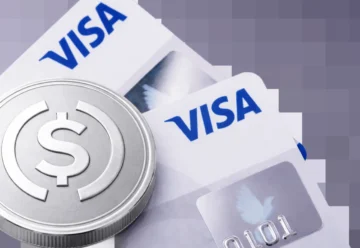IMF Develops Tool to Assess Potential Crypto Risks

The International Monetary Fund (IMF) has assessed the macrofinancial risks associated with cryptocurrency assets and proposed to develop tools to identify vulnerabilities and potential measures to regulate the crypto sphere.
The IMF has published a working paper in which Burcu Hacibedel and Hector Perez-Saiz assessed the macrofinancial risks associated with crypto-assets and proposed the concept of the Crypto-Risk Assessment Matrix (C-RAM), an instrument that can help countries identify indicators and triggers of potential risks in the crypto sphere.
C-RAM will also summarize potential actions for regulators to take in response to detected risks. The tool includes a three-step approach:
- Assessing the potential for cryptocurrencies to impact the macroeconomy.
- Analyzing indicators similar to those used to monitor the traditional financial sector.
- Examining global macrofinancial risks affecting countries’ systemic risk assessment.
As a proof of concept, the authors applied C-RAM to identify risks in El Salvador. Hacibedel and Perez-Saiz concluded that the use of BTC as legal tender in the country exacerbates a number of market and regulatory risks and provokes liquidity problems. Thus, C-RAM indicated that cryptocurrencies in El Salvador threaten financial stability and negatively affect the level of capital investment.
The IMF holds the view that cryptocurrencies need state-level regulation. Analysts have recently developed an infrastructure for a new type of international payment systems that take into account digital currencies. In cooperation with the Financial Stability Board, they also prepared a document unifying standards for various risks associated with crypto activities.











